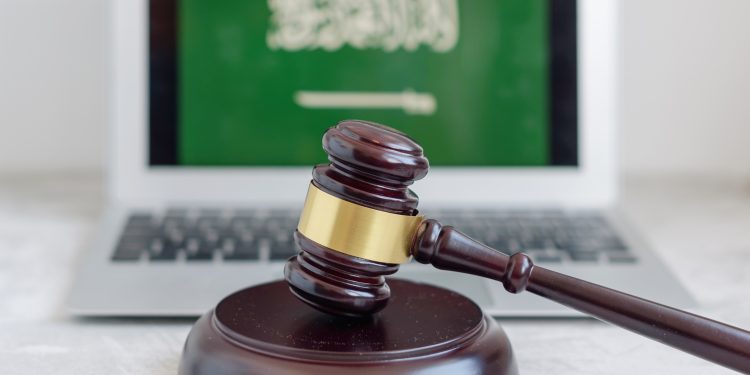Leading global law practices have acknowledged their belief in the equitable resolution of conflicts within the Saudi Arabian legal framework, as shared by an industry specialist.
At the inaugural Riyadh Construction Disputes Seminar, John Quinn, chairman and founding partner of Quinn Emanuel, praised the Kingdom’s reliable rule of law and the proficiency of its judiciary.
Organized by Quinn Emanuel Urquhart & Sullivan LLP, the seminar was designed to spotlight the progress in Saudi Arabia’s judicial system that safeguards the interests of all parties involved impartially.
Quinn emphasized that foreign entities could expect impartial treatment in legal disputes within the Kingdom, and that being non-Saudi does not predispose the courts against them.
The Civil Transaction Law, enacted in December, is central to Saudi Arabia’s legal advancement under Vision 2030. It aims to boost transparency and predictability in the legal environment.
“The civil code is anticipated to simplify civil transactions and aid judges in rendering consistent decisions across various disputes,” explained Nasser Al-Rubayyi, managing partner and co-chair of the Middle East and North Africa Practice at Quinn Emanuel.
Legal reforms
The civil code is part of a suite of four major laws declared in 2021, including the evidence code, personal status law, and the penal code. All have been enacted except for the penal code, which is expected soon, according to Al-Rubayyi.
He highlighted the civil code’s significant alterations, especially the standard of recovery, which dictates the type of claims admissible in the Saudi legal system.
Al-Rubayyi illustrated this by discussing a scenario where a construction project owner is unable to deliver a project due to the contractor’s delay, affecting the owner’s lease agreements. The code now recognizes damages related to loss of profit.
Changing economic landscape
Quinn Emanuel operates in Saudi Arabia with a team including 10 Saudi lawyers, managed by Al-Rubayyi. Quinn expressed that Saudi Arabia is a hub of energy and ambition, and the firm aims to contribute to the country’s vision by dealing with both domestic and international disputes.
These disputes typically involve contractual disagreements, Quinn noted.
Legal initiatives in the Kingdom, such as new codes for mining, personal law, and civil matters, alongside judicial enhancements through training, are boosting confidence among foreign investors.
With the Kingdom’s mega-projects, the number of litigated cases has surged, signaling a healthy litigation market proportionate to the country’s economic growth, Al-Rubayyi added.
Digital transformation
Al-Rubayyi also stressed the importance of the court system’s digital transformation in streamlining dispute resolution.
The team working on civil law may draw inspiration from other jurisdictions, but the adaptations are specifically tailored to the Saudi market and judicial system.
Al-Rubayyi advocated for the increased publication of legal precedents to assist investors in risk management and accurate risk assessment.
He reassured international investors of the robustness of Saudi Arabia’s legal system and the government’s commitment to its improvement and reform.
Commercial arbitration
The Saudi Centre for Commercial Arbitration, established in 2014, promotes adjudication in the Kingdom’s business sphere. Arbitration panels now have broader discretion, including the ability to conduct remote hearings.
As Saudi Arabia continues its digital transformation by modernizing its court system, local legal expertise becomes vital for structuring agreements and resolving disputes effectively.
Success in navigating these developments relies on patience, adherence to contracts, and the early identification and mitigation of risks.


